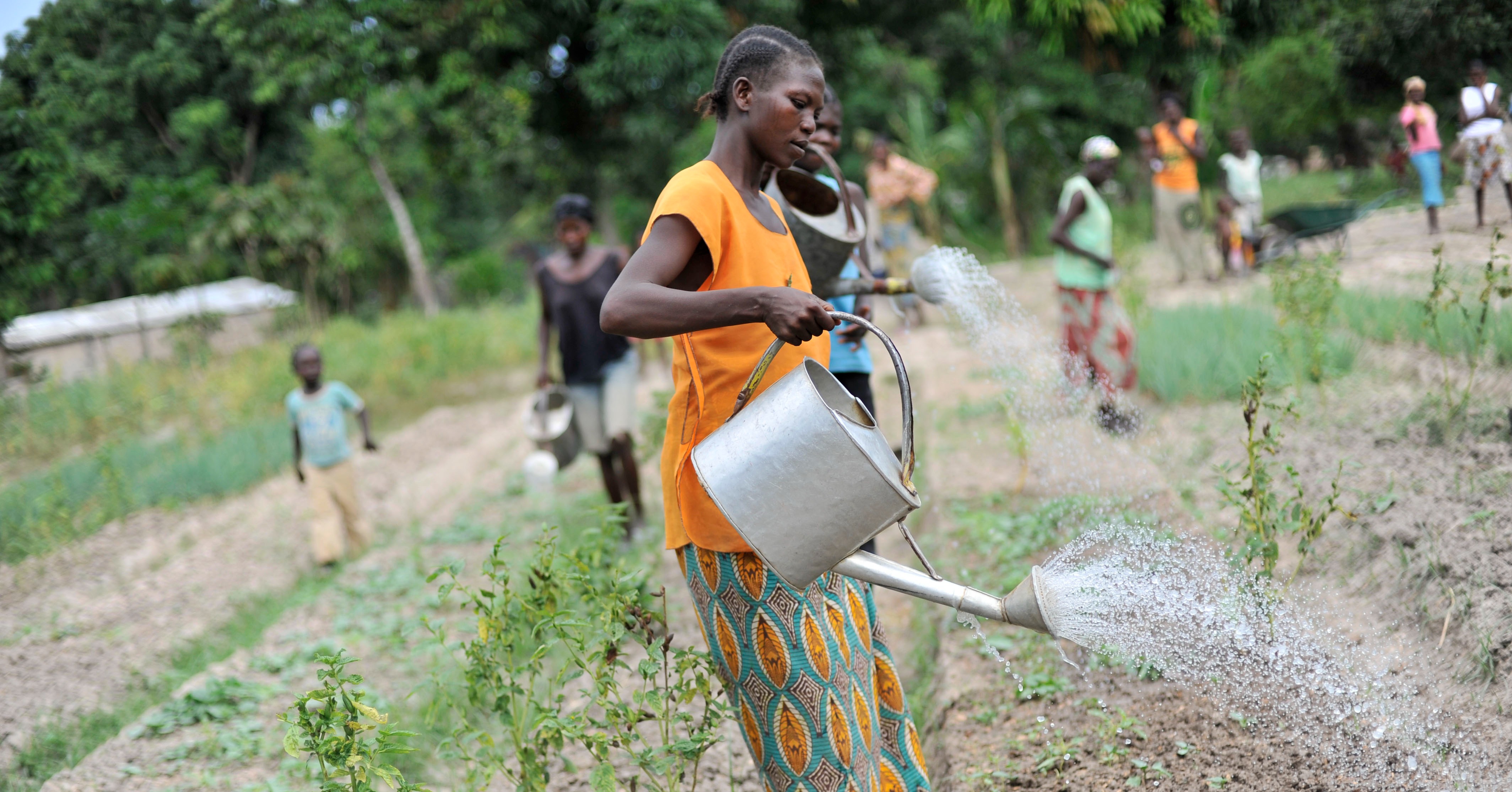World Water Congress: Agriculture holds solutions to global water crisis and food security, FAO says
Deputy Director-General Maria Helena Semedo outlines a series of important water-related initiatives

FAO will launch a global assessment on irrigation needs and irrigation potential
©FAO/Riccardo Gangale
Beijing – Agriculture can help conserve the world’s stressed water resources and make sure we have enough to eat and drink, the Food and Agriculture Organization of the United Nations (FAO) said today.
In remarks at the opening of the 18th World Water Congress here, FAO Deputy Director-General Maria Helena Semedo said: “By increasing efficiency, reducing negative impacts and reusing wastewater, agriculture holds the solutions to the global water crisis, as well as the key to achieving global water and food security,” and the objectives of the 2030 Agenda for Sustainable Development.
With agriculture responsible for more than 70 percent of global freshwater use and availability of water for agriculture widely threatened by dwindling resources, climate change and competition for other uses, water is high on FAO’s agenda.
Array of FAO initiatives on water
Semedo outlined an array of water-related initiatives as part of the Organization’s “New Water Journey” focusing on integrated water resources for agriculture and food security – and contributing to the achievement of multiple Sustainable Development Goals:
- FAO established the FAO Water Productivity Open-access portal (WaPOR) and the Global Framework on Water Scarcity in Agriculture (WASAG) platforms to support countries with data and information.
- FAO launched the Global Dialogue on Water Tenure to explore how to recognize informal and customary water users, to more equitably and accurately account for all users.
- FAO’s initiative on National Water Roadmaps towards the 2030 Agenda, presented at the Rome Water Dialogue last year, supports Member countries in developing integrated strategies and policies to ensure sustainable water use.
- The new FAO Water Journey continues with a 2nd Rome Water Dialogue next month to further address the growing complexities around water and will coincide with the Global Symposium on Soils and Water.
- To provide consolidated information and technical insights for countries to cope with future climate impacts on agriculture and rural development, FAO will also launch a global assessment on irrigation needs and irrigation potential, as well as a global assessment on the impact of floods on agriculture and rural areas.
- Integrated water resources management was the topic of the general debate at the 43rd Session of the FAO Conference and is the biennial theme for FAO Governing Bodies in 2024-25.
- “Water is life, water is food. Leave no one behind" is the theme of this year’s World Food Day on 16 October.
Commitments and larger-scale impact
FAO is committed to the Global Water Action Agenda as agreed at the UN 2023 Water Conference to ensure there is enough water for all and it is of sufficient quantity and quality for maintaining biodiversity.
In December last year, COP15 adopted the Kunming-Montreal Global Biodiversity Framework - a landmark agreement that sets out an ambitious vision for a world living in harmony with nature. Food and agriculture are crucial parts of the Framework, calling for linkages between biodiversity, water and climate and food security agenda, Semedo noted.
Semedo emphasized that ecosystem-based solutions and sustainable management of natural resources are key. Prioritizing green and blue infrastructure for agriculture and fisheries and aquaculture can enhance water quality, maintain biodiversity and provide other benefits to agrifood systems and rural areas.
The success of each hinges on holistically and coherently integrating sustainable water management as part of agreed actions – especially in agrifood systems. “We need collaborative frameworks between governments, international organizations, academia, research institutions, local communities and the private sector to ensure inclusive and sustainable planning, financing, governance and implementation.” As the clock ticks towards the 2030 timeline for the UN Sustainable Development Goals, “we need to make water flow for people and planet,” Semedo said.
Contact
FAO News and Media (+39) 06 570 53625 [email protected]
Francis Markus FAO News and Media (Rome) [email protected]
